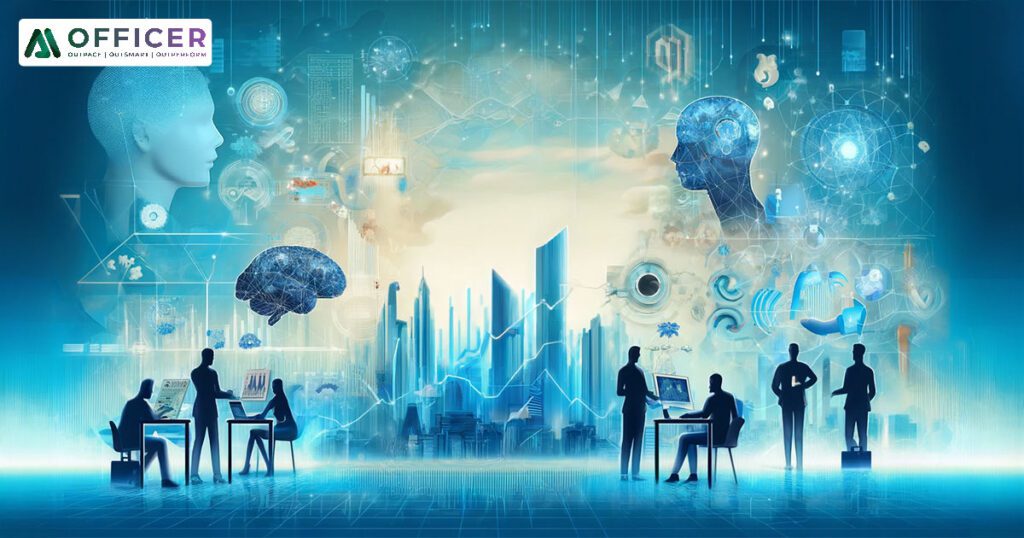
Disruption is the name of the game, with new technologies emerging at breakneck speed – reshaping industries at such an unprecedented pace, that Economists are at a pivotal crossroads.
The integration of AI into various sectors is not just a trend; it’s a transformative wave that’s redefining how businesses operate, make decisions and drive growth.
For economists, this means a significant shift in their traditional skill sets to stay relevant and impactful. But what exactly does this entail?
How can economists, who have long relied on classical theories and models, adapt to an AI-driven world?
This blog delves into the critical steps economists need to take to re-skill and up-skill in the age of AI, ensuring they remain indispensable in a tech-centric future.
So, if you’re an economist wondering how to navigate this new terrain or an entrepreneur keen on leveraging economic insights powered by AI, read on.
This is your guide to staying ahead in a world where data is the new oil and AI is the engine driving progress.
Understanding AI’s Impact on Economics
Artificial intelligence is revolutionizing how data is analyzed, predictions are made, and economic models are constructed.
Traditional econometric methods are being complemented and, in some cases, replaced by advanced AI algorithms capable of handling vast datasets and uncovering insights that were previously unattainable.
Economists need to grasp the fundamentals of machine learning, data science and AI to harness these tools effectively.
Key Trends Shaping the SME Landscape in 2024
The integration of AI is not happening in isolation.
According to recent articles, several trends and challenges are defining the business environment for SMEs in 2024 :
- Inflation and price increases : A significant concern for business owners, with 23% citing it as their top challenge. AI-driven predictive analytics can help economists forecast inflationary trends more accurately.
- Recruitment and retention : While no longer the top concern, it remains critical. AI can optimize hiring processes and talent management.
- Cash Flow Management : AI tools are enhancing financial planning and cash flow analysis, crucial for SMEs facing liquidity issues.
How Economists Can Adapt – A Step-by-Step Guide
1. Embrace Data Science and Machine Learning
To stay relevant, economists must become proficient in data science. This includes understanding machine learning algorithms, statistical programming languages (such as Python and R) and big data analytics.
- Enroll in Online Courses : Platforms like Coursera, edX and Udemy offer specialized courses in data science and AI.
- Hands-on Projects : Engage in projects that involve data cleaning, analysis and the application of machine learning models.
2. Develop Expertise in AI Ethics and Policy
AI brings with it ethical and regulatory challenges. Economists can play a crucial role in shaping policies that govern AI use in various sectors, ensuring it aligns with societal values and economic fairness.
- Study AI Ethics : Familiarize yourself with the ethical considerations surrounding AI.
- Policy Formulation : Participate in forums and think tanks focused on AI policy.
3. Leverage AI for Economic Forecasting
AI’s predictive capabilities can vastly improve economic forecasting. Economists should learn how to integrate AI tools into their forecasting models to enhance accuracy and reliability.
- Adopt AI Tools : Utilize AI platforms like TensorFlow or PyTorch for building predictive models.
- Collaborate with AI Experts : Work alongside data scientists and AI specialists to refine forecasting techniques.
Several industries are already witnessing the benefits of integrating AI with economic insights :
- Retail : AI helps in demand forecasting, optimizing inventory levels and personalizing customer experiences.
- Finance : Economists use AI for risk assessment, fraud detection, and portfolio management.
- Healthcare : AI-driven economic models assist in resource allocation, cost management and improving patient outcomes.
At AI Officer, we specialize in providing customized AI solutions tailored to the needs of SMEs and startups. Our services range from AI-driven economic forecasting to developing robust AI strategies that drive business growth.
Our solutions include :
- AI-Powered Analytics : Transform raw data into actionable insights.
- Predictive Modeling : Enhance decision-making with accurate predictions.
- AI Training Programs : Equip your team with the skills needed to thrive in an AI-driven world.
As AI continues to revolutionize industries, economists must adapt by embracing new technologies, developing expertise in AI ethics, and leveraging AI for more accurate forecasting.
Stay tuned to our blogs for more insights on AI and its impact on various sectors.
For customized AI solutions tailored to your business needs, get in touch with our AI officers today and transform your economic strategies for a prosperous future.





